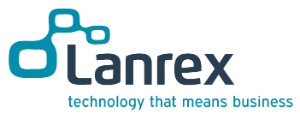
Back in 1934 the poet TS Eliot in words for a musical play ‘The Rock’: “All our knowledge brings us nearer to our ignorance … Where is the wisdom we have lost in knowledge? Where is the knowledge we have lost in information?”
Businesses struggle to extract data insights and put it to work
What’s that got to do with data in the age of the computer? Take this quote from a report by the Economist Intelligence Unit (IEU) The Virtuous Circle Of Data: “During the last five years, companies have invested significantly in gathering and analysing vast and increasingly complex data. Yet many still struggle to extract insights and put those insights to work for their business. Part of the trouble is the speed and scale of information overload for executives today, and the rapid pace at which they must make decisions. The ability to rely on gut feel, which used to be their greatest business asset, is now greatly diminished.”
In other words, CEOs now have vast amounts of data, but the value of their wisdom and knowledge is greatly diminished, and they struggle to extract the same from the mountains of data that technology now delivers. So what’s the solution?
Harnessing those masses of data and extracting value from them is what’s needed and according to the EIU, executives cannot harness that asset alone. “They are quickly finding that they must enlist the entirety of their workforces—and that doing so is fast becoming the central challenge for businesses that aspire to be truly data-driven.”
A data-driven business needs leadership to evolve the right culture
It claims they are not going about this the right way. After interviewing a number of experts for its report the EIU concludes: “Becoming a data-driven business generally happens in three stages [but] as is often the case, what should be done first—establish a strong leadership focus on cultivating a data-centric culture—almost invariably happens last.”
Initially, the report says, “Organisations tend to focus primarily on technology and tools. Then they look to acquire the right talent and expertise.” Real success, however, rests on tackling the most critical and difficult-to-execute stage: “Evolving the right corporate culture—one in which employees embrace data and apply them day-to-day.”
But even with that leadership the journey is not easy.
Employee engagement and ease of data access are the key
“An even greater challenge—and one vital to overcome—arises in motivating and engaging employees across all levels of the organisation to use data.”
And how do they do this? “The best-performing and most data-centric companies understand the criticality of employee engagement,” the report says. “To drive more of it, they are making data universally available and easy to use; they are also linking data to day-to-day business goals and tasks. In addition, they are investing in employees by putting in place training and advancement programmes focused on data analytics, creating compensation incentives and competitive motivators, and even making data analytics fun and social.”
The report pulls no punches on the importance of achieving these goals: “The importance of data as a corporate asset cannot be overstated. Companies are increasingly closing the technology and expertise gaps, and many of them are deeply engrossed in the third stage—the cultural stage—of transforming themselves into truly data-driven businesses.”
The report closes with a comment from one of the senior executives interviewed: “The key to future success is to build an organisation that can innovate with data, … to disperse the data, democratise the tools and unleash the creativity of individual employees.”
So instead of knowledge and wisdom being lost in a mass of data, data will become the wellspring of organisational wisdom.

We’re creating a business that provides unlimited potential for our team. We believe that each and every team member has an equal opportunity to play a strategic and impactful role.
GET IN TOUCH